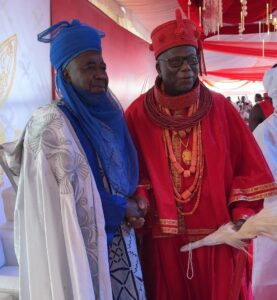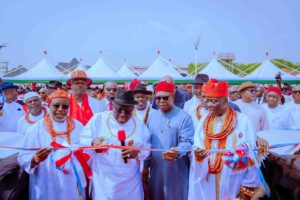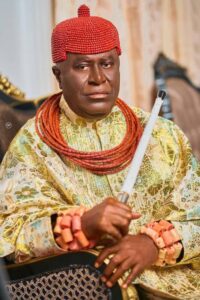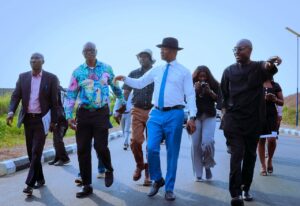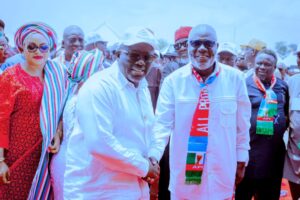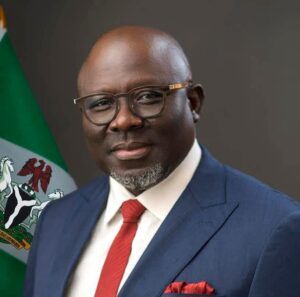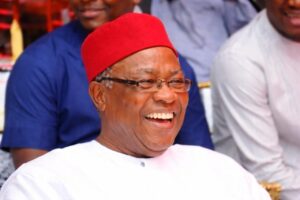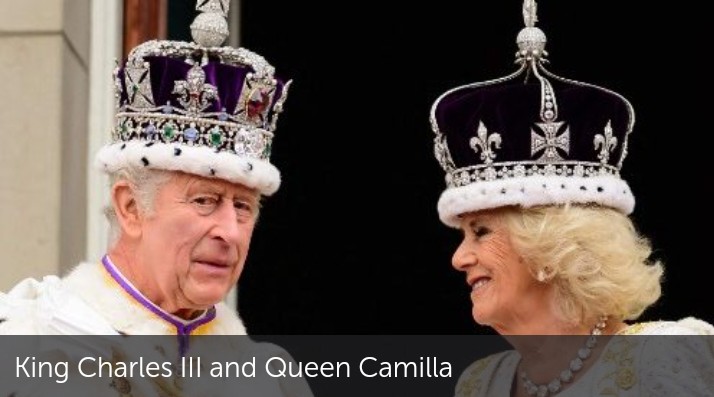
King Charles 111 and Queen Camilla
By Jon Egie
The coronation of King Charles 111 and Queen Camilla yesterday, Saturday, May 6, 2023 was the first time a papal representative was present for the Coronation inside Westminster Abbey since 1553.
Cardinal Pietro Parolin represented Pope Francis and the Holy See at the Coronation of King Charles III and Queen Camilla in Westminster Abbey on 6 May 2023, a historic occasion steeped in history but tinged with modernity.
[the_ad id=”16914″]
His Majesty’s Ambassador to the Holy See, Christopher Trott gave the historical geek in an interview with Vatican News.
Dwelling on some significant details that firmly place the ancient ceremony in the new millennium, Amb Trott explained that during the crowning of Queen Elizabeth 11 in Westminster Abbey on 2 June 1953, Pope Pius XII’s representative in Britain followed the ceremony from an especially- built stand outside Westminster Cathedral -the Catholic mother church that was some 400 metres away from the Abbey.
The presence now of a papal representative inside the Abbey for the Coronation is not due to British government policy, he said: “It is a result of Vatican Two.”
“When Queen Elizabeth was crowned, the Vatican’s approach was not to allow members of the Church to participate in a ceremony run by a different Christian denomination.”
According to Ambassador Trott, the delegation sent a delegation to the 1953 Coronation headed by the Nuncio to Belgium, who had to sit on this platform outside the west door of the Abbey, and “when the service started, the doors closed and he was still outside.”
[the_ad id=”16918″]
On this occasion, he said, two senior members of the Catholic Church (Cardinal Parolin and most probably the newly appointed Apostolic Nuncio to Great Britain) were present in the Abbey and were part of the Coronation service for the first time in almost 500 years.
“They assisted the public part of the ceremony, watched the crown being put on the King and the Queen and witnessed the brief scene of the anointing ceremony that was screened from public view.
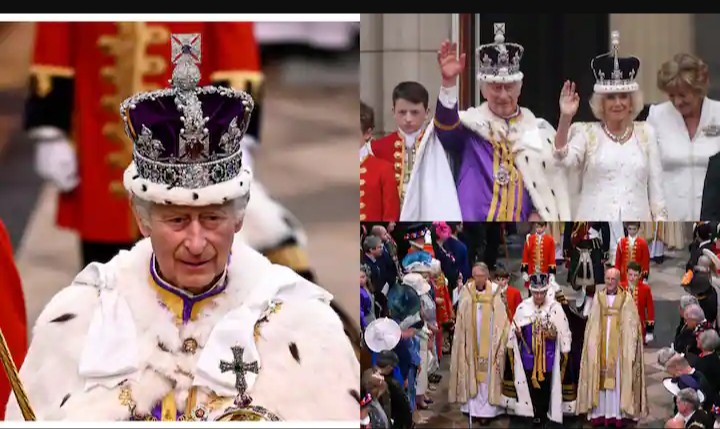
Ambassador Trott noted already back in 1953 the Coronation was transmitted live by the media and since then coverage has become broader, allowing more and more people to participate in the modernization of the monarchy.
“We’ve already seen changes,” he said, mentioning the fact that the proclamation of the Accession Council that took place shortly after the Queen died last year was televised.
[the_ad id=”16920″]
“We were able to see the first thing the King did, was promise to look after the Church of Scotland.”
Although the media is a lot more sophisticated than it was in 1953, and the King will try to maximize the reach of the Coronation ceremony, Ambassador Trott explained that after having sworn an oath to uphold the law and the Church, the King is partially undressed and anointed with holy oil. This, he said, is the most “sacred” part of the ceremony and will probably be screened from public view.
One of the novelties pertains to this sacred moment as the oil, that has been produced and blessed in Jerusalem, does not include any animal products as per a specific personal request of King Charles.
The religiosity of this moment, Ambassador Trott explained, “reflects the promises that the King makes to God as opposed to just to his people.”
Among the many titles of the King are Defender of the Faith and Supreme Governor of the Church of England. The ambassador said that “to say that this role is merely titular, would be underestimating it.”
“Symbolically, he is regarded as the head of the Church of England and technically, therefore, an archbishop of the Church of England would be appointed by the King. Because of the relationship between State and Church, the appointment of an archbishop, particularly the Archbishop of Canterbury, is done on the recommendation of the Prime Minister, to the monarch,” he said.
[the_ad_placement id=”advert”]
The role of faith
For Charles’ mother, Queen Elizabeth II, faith played an important role in her governance. Ambassador Trott expressed his belief this trait will continue, as witnessed also by the fact that “the very first time he addressed his people, the day after Her Majesty the Queen died in September, he referred to the fact that his mother had used her faith as a basic foundation for everything that she did, and he also undertook to work on the same basis.”
“And it’s well known that he has a strong personal faith.”
“And while he’s always been interested in reaching out to other faiths, his faith is grounded in his Christian upbringing and his role as head of both the Church of England and the Church of Scotland,” he said.
The diplomat also noted that Charles has made no secret of reaching out to other faiths and said it will be interesting to see what sort of acknowledgement there will be of the nation’s multifaith society during the Coronation ceremony.
Ambassador Trott expressed absolute confidence in being able to continue to develop the warm and fruitful diplomatic relations that thrived between the Holy See and the United Kingdom during the reign of Queen Elizabeth II.
[the_ad_placement id=”advert-1″]
King Charles, he noted, has already met three Popes in his life: John Paul II, Benedict XVI when he visited the UK, and Pope Francis.
“I expect there will be a continued, mutually respectful relationship between the British sovereign and the Holy Father,” he said, and he recalled the “really striking gesture made by Pope Francis in the run-up to the Coronation with this gift of a piece of the True Cross.”
“That gift has been incorporated in this beautiful Welsh cross that was used to lead the Coronation Procession into the abbey.”
Source: Vatican News

